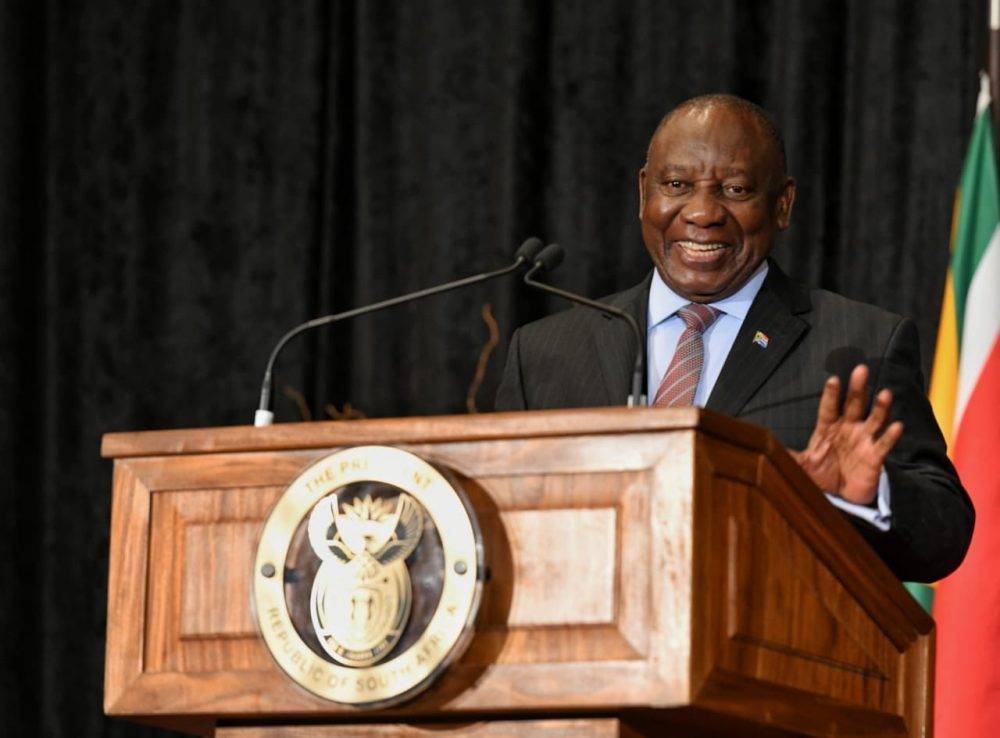
President Cyril Ramaphosa
President Cyril Ramaphosa has called for a new era of principled multi-lateralism and respect for international law in an address at the G20 summit in Brazil.
It required a renewed commitment to the UN Charter, he said in remarks to a working group on the reform of global governance institutions.
“All member states must comply with its principles and with international law. There can be no exceptions and no country is immune from these obligations. We are all bound by the same rules,” Ramaphosa said.
South Africa is poised to take over the G20 presidency from Brazil and intends to use it as a platform to campaign for the reform of multilateral institutions, notably the UN Security Council.
He stressed, as he has done repeatedly in recent months, that the United Nations must remain the anchor of the multilateral order as the world grapples with climate change, poverty and conflict in the Middle East, Ukraine, Sudan and beyond.
“The UN must lead the way in advancing peace and security, tackling poverty and under-development, and protecting human rights,” he said.
“To address these challenges, we need more robust multilateralism and a renewed commitment to the purposes and principles of the UN Charter.”
It called for the peaceful resolution of conflicts and respect for the principle of self-determination, Ramaphosa stressed.
He then spoke directly to the Palestinian cause, support for which South Africa has made a centrepiece of its foreign policy, and said the G20 had an obligation to work to end the war in Gaza.
“The people of Palestine have been denied their right to self-determination and are under the yoke of a brutal and violent occupation.
“As the G20 collective, we need to add our voices to ensure that the carnage that is taking place in Gaza is ended and that we work towards a just and lasting peace for both Palestinians and Israelis.”
It was vital, he added, that the UN be able to counter war crimes, including the weaponisation of famine, which South Africa has accused Israel of doing in Gaza in papers filed to the International Court of Justice.
“It must be capable of combating the use of hunger as a weapon of war, as we are now seeing in some parts of the world, including in Gaza and Sudan.”
On Monday, Russia vetoed a UN Security Council draft resolution that called on warring parties in Sudan to cease hostilities immediately and ensure the delivery of humanitarian aid.
Sudan faces the world’s worst displacement crisis, driven by conflict between the army and the paramilitary Rapid Support Forces and, according to UN figures, 25 million people now need food aid as famine has taken hold in displacement camps.
All other council members supported the text drafted by Britain and Sierra Leone.
British foreign secretary David Lammy called Moscow’s stance a disgrace, and asked: “How many more women have to be raped? How many more children have to go without food before Russia will act?”
South Africa is campaigning for at least two permanent seats for Africa on the security council, with full veto rights, and five-non permanent seats, and intends to lobby powerful nations in the G20 for support in this regard.
International Relations Minister Ronald Lamola raised the subject with Lammy in talks in Cape Town earlier this month.
The United States signalled in September that it would support giving the continent two permanent seats, but without veto rights attached.
Ramaphosa has accused the security council of failing its mandate, with “a disastrous impact on the African continent and the Global South” and said its reform, with veto rights for Africa, was urgent because, like other multilateral institutions, the UN reflected the world as it was 70 years ago.
“These institutions need to be inclusive and representative. Just as we call for the UN and UN Security Council to be inclusive and not leave others out,” he said on Monday.
“They must be able to respond to the needs of all persons and under all situations.”
He added a call for reform of the World Trade Organisation (WTO) to create a fairer dispensation for developing nations.
“We want to urge that the WTO must move towards reforms so that the trading system in the world is fair for all,” he said. “The global financial system must be fit for purpose.
“More ambitious targets should be set for grants and concessional financing. This includes the special drawing rights that must be available for a number of developing economy countries, including on the continent of Africa.”
Source:
mg.co.za
Source link

